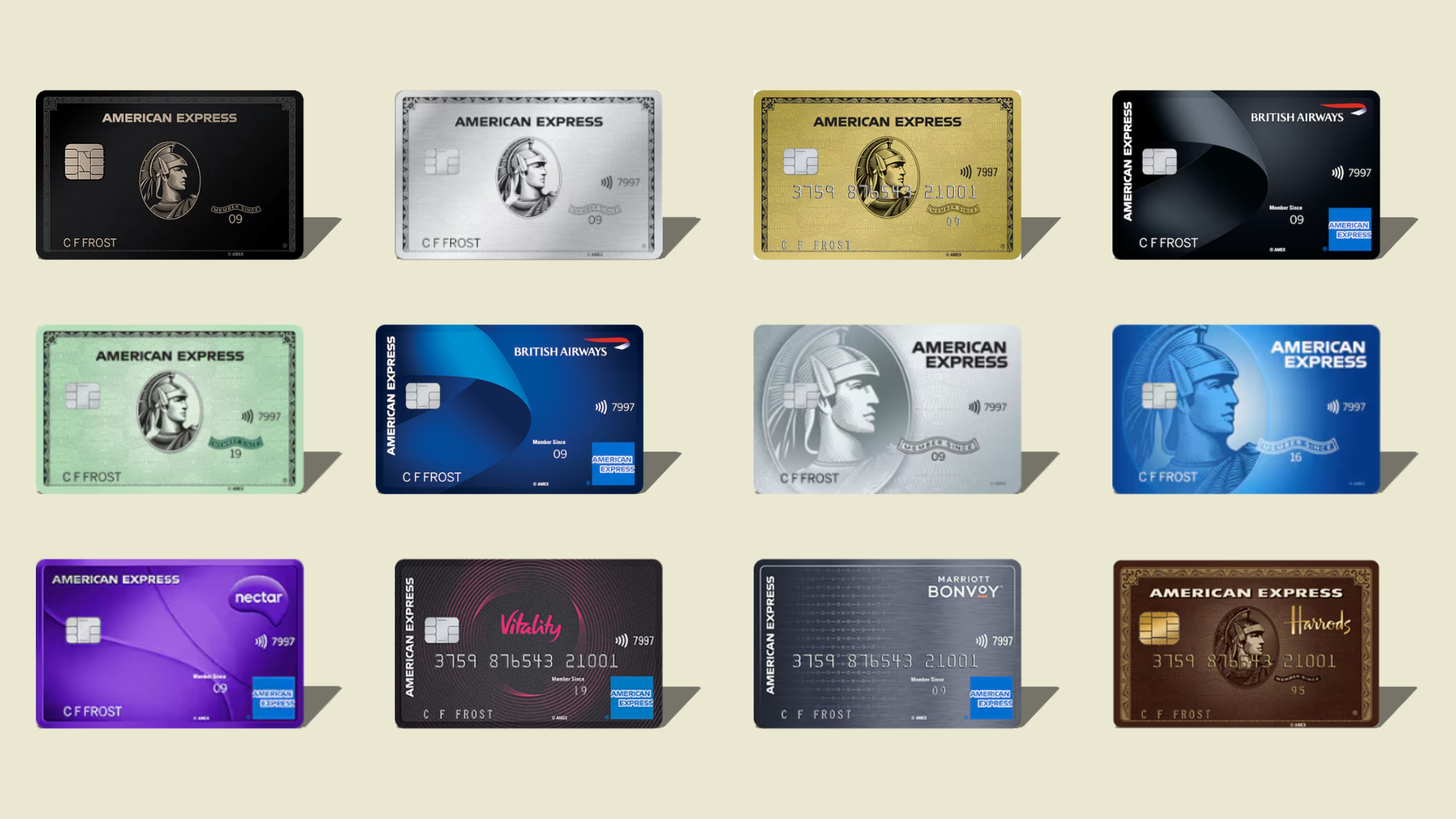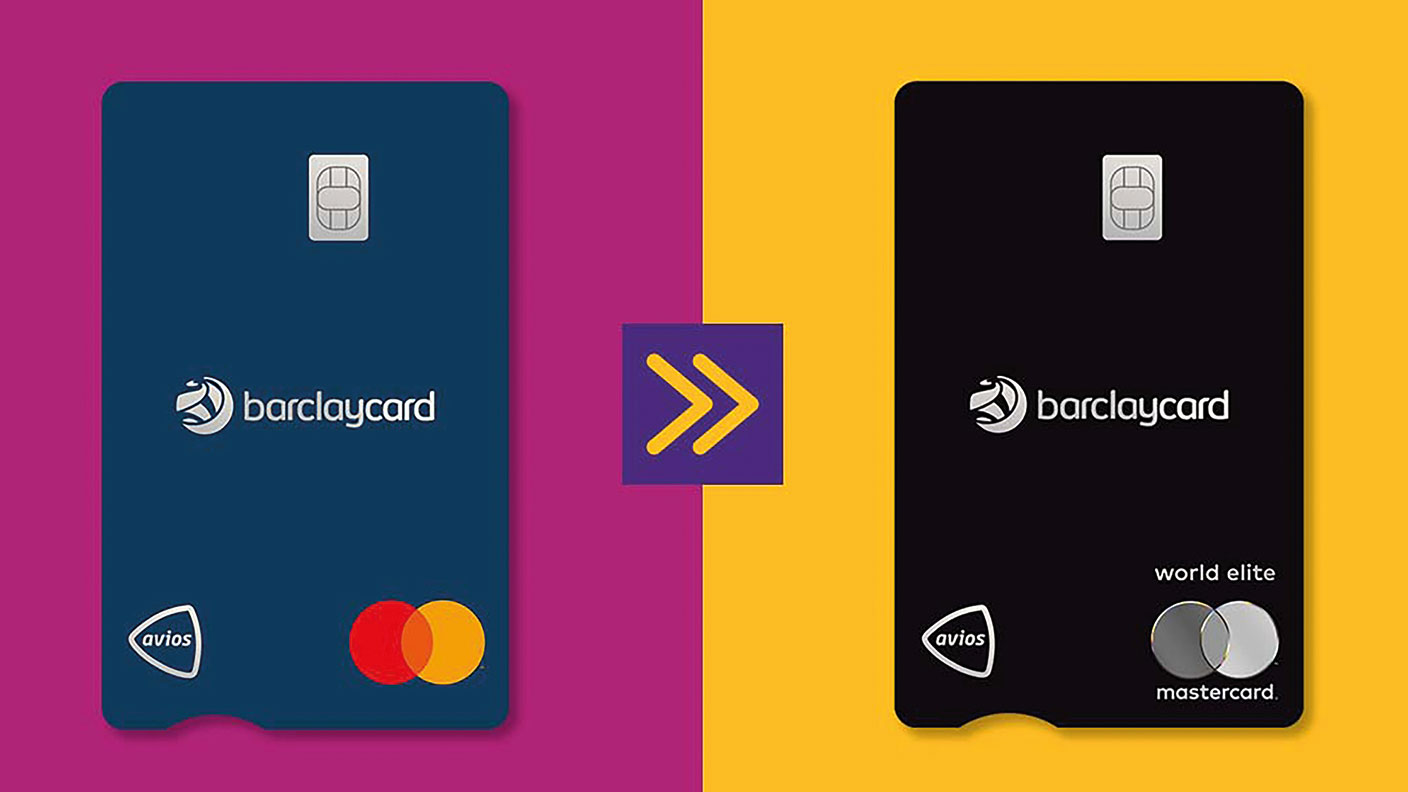The best cashback deals
The days of bumper cashback earnings from credit cards are drawing to a close. Ruth Jackson looks at the best deals still available.

Get the latest financial news, insights and expert analysis from our award-winning MoneyWeek team, to help you understand what really matters when it comes to your finances.
You are now subscribed
Your newsletter sign-up was successful
Want to add more newsletters?

Twice daily
MoneyWeek
Get the latest financial news, insights and expert analysis from our award-winning MoneyWeek team, to help you understand what really matters when it comes to your finances.

Four times a week
Look After My Bills
Sign up to our free money-saving newsletter, filled with the latest news and expert advice to help you find the best tips and deals for managing your bills. Start saving today!
The days of bumper cashback earnings from credit cards are drawing to a close after American Express became the latest credit-card provider to slash its cashback rates. For years, Amex's Platinum Cashback and Platinum Cashback Everyday cards have consistently been the most generous cashback cards: if you were willing to put up with the hassle of your main credit card not being accepted everywhere, the American Express cards offered more than double the cashback offered elsewhere. But that's changing. New applicants will still get 5% cashback for the first three months, as before, but after that the deal gets a lot less generous.
The most you can earn now on the Everyday card is 1%, down from 1.25% previously. To get 1% you'll have to spend at least £5,000 per year. Spend less than that and you'll only get 0.5% cashback. The Platinum card now requires you to spend more than £10,000 a year to get its top rate of 1.25% cashback and the anniversary rate (when your cashback was doubled for one month in the year) has been scrapped. The reduced rates apply to new applicants immediately and to existing cards from 8 November.
So, is Amex still worth bothering with? If you already have an Amex cashback card and use it sensibly, it's unlikely to make sense to cancel it. The Amex cashback rates still beat what you'll get on other credit cards. However, you must make sure you pay your balance in full each month. The Everyday and Platinum cards have a whopping APR of 22.9% and 28.2% respectively. Accrue interest on these cards and you'll quickly pay American Express far more than it is paying you in cashback.
MoneyWeek
Subscribe to MoneyWeek today and get your first six magazine issues absolutely FREE

Sign up to Money Morning
Don't miss the latest investment and personal finances news, market analysis, plus money-saving tips with our free twice-daily newsletter
Don't miss the latest investment and personal finances news, market analysis, plus money-saving tips with our free twice-daily newsletter
If you're applying for a new card, you need to assess how you'll use it. For big spenders who clear their card monthly, Amex will usually still be the best deal. But if you spend less than £5,000 a year on your credit card, or know you won't always clear your balance, consider Nationwide's Select credit card. This pays 0.5% cashback on all sterling purchases and has a 12-month interest-free period on purchases and balance transfers.
Alternatively, Santander's 123 credit card pays 1% cashback on supermarket shopping, 2% in department stores and 3% on petrol and train fares. But your maximum cashback is capped at £9 a month and there is a £36 annual fee.
Two alternatives to cashback cards
For example, if you do all your supermarket shopping at Tesco then the Tesco Clubcard could be worth a look. You earn one clubcard point per £4 spent in Tesco on the credit card (on top of the one point per £1 you earn just for having a standard Clubcard) and one point per £8 spent elsewhere. Each point is worth 1p when spent in the store, but you can use Clubcards Rewards vouchers to boost a point's value up to 4p. So if you use the card widely, you could earn a lot more than you can with a cashback card.
When it comes to choosing an air miles credit card the choice really comes down to who you fly with most regularly, because the fastest way to build up big rewards is through frequent flying on the same airline. The British Airways American Express card rewards you with one Avios point per £1 spent on the card, and if you spend £20,000 a year on the card you'll earn a free "companion ticket". Virgin Atlantic's White card offers one mile per £1 spent and a companion ticket if you spend £15,000 a year.
The drawback with rewards credit cards is that you are accruing your rewards in the provider's "currency" and your earnings can be devalued at any time. In recent years, both Tesco and British Airways have fiddled with their rewards systems, resulting in points being worth less than before.
Get the latest financial news, insights and expert analysis from our award-winning MoneyWeek team, to help you understand what really matters when it comes to your finances.

Ruth Jackson-Kirby is a freelance personal finance journalist with 17 years’ experience, writing about everything from savings accounts and credit cards to pensions, property and pet insurance.
-
 Should you buy an active ETF?
Should you buy an active ETF?ETFs are often mischaracterised as passive products, but they can be a convenient way to add active management to your portfolio
-
 Power up your pension before 5 April – easy ways to save before the tax year end
Power up your pension before 5 April – easy ways to save before the tax year endWith the end of the tax year looming, pension savers currently have a window to review and maximise what’s going into their retirement funds – we look at how
-
 What are British Airways Amex companion vouchers, and how do they work?
What are British Airways Amex companion vouchers, and how do they work?American Express customers with British Airways credit cards can effectively double the value of their Avios points by using a companion voucher. We look at what they are, and how you can use them.
-
 American Express introduces 'Plan It' payment instalment option
American Express introduces 'Plan It' payment instalment optionNews Amex users can now split parts of their credit bill into further instalments. Is it worth it?
-
 Which is the best American Express credit card?
Which is the best American Express credit card?American Express credit cards can help you earn cashback or reward points on everyday spending, but which card is the best for you? We compare the options
-
 How to earn cashback on spending
How to earn cashback on spendingFrom credit cards and current accounts to cashback websites, there are plenty of ways to earn cashback on the money you spend
-
 Slash the cost of your next holiday with Avios points
Slash the cost of your next holiday with Avios pointsMiscellaneous Avios points can cut the cost of travelling - we explain how using the right credit card and bank account can help you quickly build up thousands of Avios points.
-
 The best credit cards for cashback
The best credit cards for cashbackThe best credit cards for cashback can help you earn rewards on everyday spending. We list some of the top deals on the market
-
 The best credit card for collecting air miles
The best credit card for collecting air milesAdvice The Barclaycard Avios and Avios Plus are more widely accepted than Amex, says Ruth Jackson-Kirby.
-
 Amazon signs a truce with Visa on credit card fees
Amazon signs a truce with Visa on credit card feesNews Amazon has reached an agreement with Visa that allows its customers to continue paying by Visa credit card. Saloni Sardana explains what's happened and why.